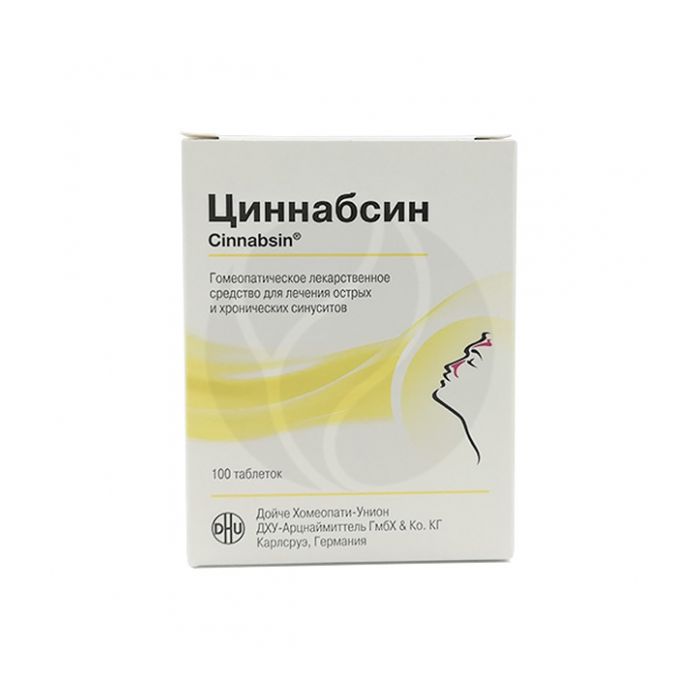Cinnabsin tablets, No. 100
Expiration Date: 05/2027
Russian Pharmacy name:
Циннабсин таблетки, №100
In the complex therapy of acute and chronic inflammation of the paranasal sinuses (sinusitis, frontal sinusitis).
In acute illness, children from 3 to 6 years old are prescribed 1 tab. every 2 hours (no more than 6 times / day) until improvement occurs, then 1/2 tab. 3 times / day until complete recovery.
Children from 6 to 12 years old are prescribed 1 tab. every hour (no more than 7-8 times / day) until the onset of improvement, then - 1 tab. 2 times / day until complete recovery.
Adults and children over 12 years old are prescribed 1 tab. every hour (no more than 12 times / day) until the onset of improvement, then - 1-2 tab. 3 times / day until complete recovery.
For chronic diseases, children from 3 to 6 years old are prescribed 1/2 tab. 3 times / day; children from 6 to 12 years old - 1 tab. 2 times / day; adults and children over 12 years old are prescribed 1 tab. 3 times / day until the condition improves.
The course of treatment for the prevention of relapses in the chronic course of the disease - up to 2 months.
The tablets should be taken 30 minutes before or 30 minutes after a meal, slowly dissolving in the mouth. For children from 3 to 5 years old, it is recommended to dissolve the tablet in a small amount of liquid or give it crushed under the tongue.
| Pills | 1 tab. |
| active substances: | |
| Cinnabaris D3 | 25 mg |
| Hydrastis D3 | 25 mg |
| Kalium bichromicum D3 | 25 mg |
| Echinacea D1 | 25 mg |
| excipients: lactose monohydrate; magnesium stearate; wheat starch |
Hypersensitivity to the components of the drug.
It is not recommended to prescribe the drug to children under 3 years of age due to insufficient clinical data.
pharmachologic effect
Homeopathic medicine for sinusitis. Has anti-inflammatory and anti-edema effect, reduces increased secretion in the sinuses. Facilitates nasal breathing. Helps to strengthen the immune system.
Side effect
Possible: allergic reactions; in isolated cases - skin reactions, with the development of which the drug should be canceled.
After using the drug, increased salivation may occur (in this case, you should reduce the dose or stop taking the drug).
Application during pregnancy and lactation
The use of the drug Cinnabsin during pregnancy and lactation (breastfeeding) is possible only if the intended benefit to the mother outweighs the potential risk to the fetus and child.
Application in children
It is not recommended to prescribe the drug to children under 3 years of age due to insufficient clinical data.
special instructions
When using Cinnabsin, a temporary worsening of the condition is possible. In this case, the patient should stop taking the drug and consult a doctor.
When using Cinnabsin, the use of other drugs is allowed.
The patient should be informed that if there is no therapeutic effect within 3 days, the drug should be canceled and a doctor should be consulted.
Taking the drug Cinnabsin can have a negative effect on patients with celiac disease and lactose intolerance.
Overdose
Currently, no cases of overdose of the drug Cinnabsin have been reported.
Drug interactions
The drug interaction of the drug Cinnabsin with other drugs has not been established.

